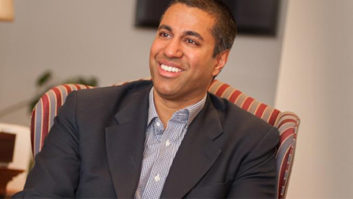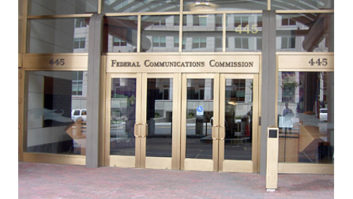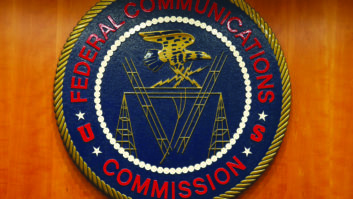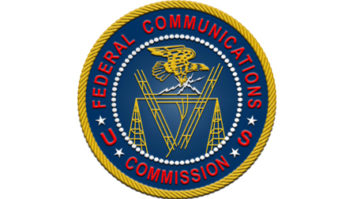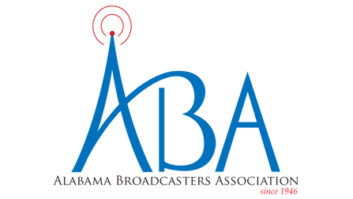Past Participants Hope FCC Will Tweak System Before Next CPs Go on the Block
WASHINGTON Critics of the way the FCC awards FM construction permits say the spectrum auction process is not fair to smaller companies and doesn’t do enough to boost ownership diversity.
Several groups think the process is sufficiently flawed to ask the commission to reconsider auction rules before the next sale of allotments in the FM broadcast service. Auction 62 is scheduled for November.
The commission says it’s prepared to answer those concerns and reconsider potential changes.
The FCC’s auction system was first used last fall when the commission awarded 258 FM CPs to 110 bidders and pumped $147.8 million worth of net revenue into FCC coffers. Prior to that, the commission used a comparative hearing process in deciding licensing cases, which sometimes took years to resolve.
FM Auction 62 consists of 143 new FM allotments and 30 unsold FM CPs from last year’s auction. It will be conducted over the Internet with telephonic bidding available.
High reserve prices and an unfair bidding credit program are a “significant obstacle to many potential bidders,” said Dale Ganske, president of L. Topaz Enterprises Inc. and a former radio station owner.
Bidding credit merits debated
“The FCC’s only objective is to maximize the dollars. That’s why they went to this process,” said Ganske, who successfully bid on a FM CP in Roscoe, S.D., last year.
Ganske says the commission’s New Entrant Bidding Credit is particularly unfair, because it considers each bidder’s current interest in radio properties and gives no consideration to a bidder’s financial condition.
The bidding credit includes a 35 percent credit to winning bidders who have no attributable interest in other mass media and a 25 percent credit to winning bidders who have attributable interest in no more than three mass-media properties – all regardless of financial need.
“You should be given credit based on your financial condition or need. That would level the field between small companies and larger groups,” Ganske said.
Ganske argues those rules did not prevent a few former successful radio executives from receiving the credits and winning CPs in numerous markets in the previous auction.
“Randy Michaels does not need a bidding credit,” Ganske said. Michaels is a former Clear Channel executive. His company, Radioactive LLC, bid successfully on 21 new CPs with net bids totaling more than $8.5 million. The company qualified for a 35 percent bidding credit.
Mark Van Bergh, a Washington-based communications attorney, said he doesn’t believe the procedure necessarily favored larger companies. However, the high prices for channels did.
“Prices went way, way beyond what anyone had envisioned. Small public and commercial broadcasters just don’t have the resources to compete when that happens,” Van Bergh said.
Meanwhile, the Minority Media and Telecommunications Council has asked the FCC to study 2004’s Auction 37 to determine why minority firms faired poorly. The group says a random check showed that gains in minority ownership from last year’s auction were negligible, according to Executive Director David Hoeing.
“The top three Auction 37 winners, each of whom used bidding credits, were wealthy non-minority career broadcast executives,” said the group.
Opponents of the simultaneous multiple-round auction claim the method by which the FCC sets minimum opening bids is inaccurate.
According to comments filed with the FCC by Mullaney Engineering Inc., which acted as a bidding agent for several potential buyers during the previous auction, minimum opening bids “are based, in part, on the number of persons encompassed within a potential coverage radius. However, in all cases, it appears the FCC is assuming a perfect circle of coverage.”
The commission says it considers the type of service and class of facility offered, market size, population covered by the proposed FM broadcast facility and recent broadcast transactions in setting minimum opening bids and reserve prices.
Mullaney Engineering executives claim the “oversimplification will result in the FCC’s predicted population being higher or lower than it really should be.”
Bid withdrawals
Summit Media Broadcasting, which owns several stations in Sutton, W.Va., found the bidding process to be “unfair to smaller broadcasters” and “favoring large bidders.”
“The Simultaneous Multiple-Round Auction Design favors the national well-funded groups who have the ability to jump to a smaller-market channel if they encounter a high bid in a favored larger-market channel.
“This action creates a resting place for large bidders till they see how their preferred channel is doing. This may also be the reason for so many auction participants withdrawing their high bid and the FCC having to take back channels,” a Summit Media Broadcasting senior executive wrote in a letter to the agency.
“We are reviewing comments on various auction procedures such as auction design, activity rules, round structure, minimum opening bids and bid withdrawals,” FCC Audio Division spokeswoman Lisa Scanlan said.
The FCC planned to respond to auction commenters in the next public notice, called the Procedures Public Notice, which was to be released by the end of May, Scanlan said.
“It will be responsive to the comments we received and announce the procedures and minimum opening bids for the upcoming auction,” she said.
Most of the 30 leftover licenses from Auction 37 were the result of withdrawn bids, Scanlan said. Penalties may be incurred when bids are withdrawn.
According to FCC rules, “If a high bidder withdraws or defaults after the close of the auction, the high bidder is required to make an interim payment equal to 3 percent of the net amount of the withdrawn bid. The amount will be deducted from any upfront payments or down payments.
“If, in a subsequent auction, the winning bid amount for that license is less than the bidder’s withdrawn bid amount, the bidder will be required to make a final bid withdrawal payment equal to either the difference between the bidder’s withdrawn bid amount and the subsequent net winning bid.”
Those withdrawals drew the attention of several commenters, who claim some existing broadcasters could have used the tactic to keep new broadcasters out of certain markets.
“There may have been some gamesmanship going on in certain markets,” said Van Bergh. “It’s interesting when a group bids millions and then withdraws the high bid after five rounds pass by and the other competition is no longer able to bid on the CP. It’s speculation, but surely the commission would be concerned about it.”
Van Bergh, who represented several public broadcasters in Auction 37, said he expects some “minor tweaking” of the auction’s process before this fall.
Scanlan said three parties defaulted on their payment obligations for construction permits won in Auction 37.







